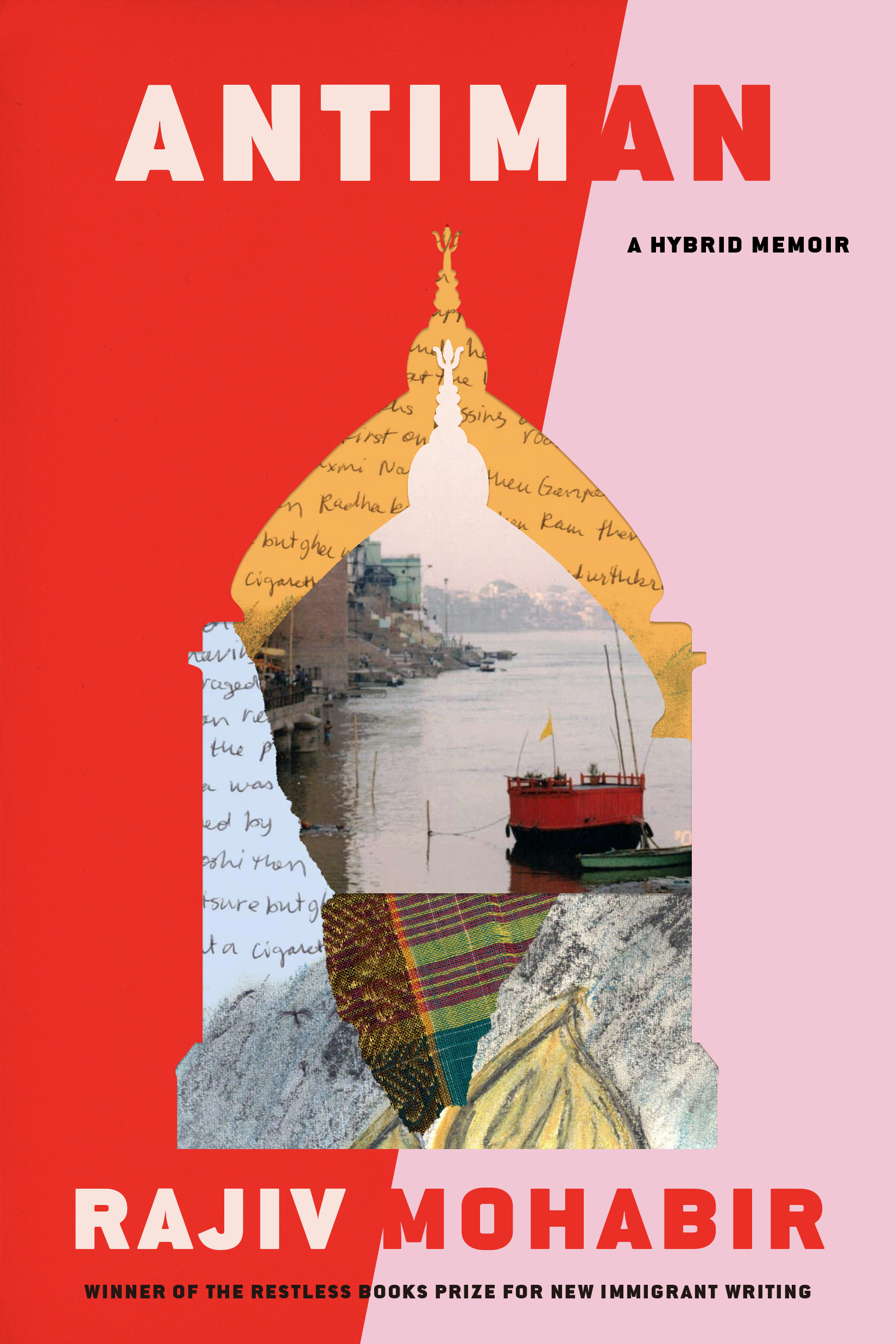WP_Post Object
(
[ID] => 15196
[post_author] => 6
[post_date] => 2021-01-14 10:42:50
[post_date_gmt] => 2021-01-14 16:42:50
[post_content] => Born in London to Guyanese Indian parents and immigrating to the United States when he was a toddler, Rajiv Mohabir’s familial history is one of displacement and constant migration. His great grandparents were indentured laborers who worked on British sugar plantations after the (official) abolition of the slave trade in 1834. In South America, his parents were forced into Christianity and colonial education before moving to England. After growing up in Indian immigrant communities in the US, Mohabir is inspired by his own blended identity to approach his experiences in multiple genres. Full of poetry, prose in distinctive dialects, myth, and family lore, Antiman is a song cycle in which Mohabir wanders the intersections of his stifled history. He returns to Varanasi, India a century after his ancestors left to work the sugar cane fields of the British colony and then to Orlando, Florida where he studies at the feet of his unlettered Aji. When he goes to New York City his cousin labels him “antiman,” a Caribbean slur for queers. His kin show him the fraught side of consanguinity as he is outed to his extended, conservative Guyanese American family. His life changes forever. Dawning the slur as a cloak, Mohabir moves to New York City to work as an ESL teacher and struggles, without family, to love his brownness in the city known as the second diaspora for Indians from the Caribbean: Queens. He discovers that the word means just that: anti-man, the man who beds men, a word that Mohabir moves into and upsets through his travails with fraught relationships. Throughout the journey, his family’s ancient lore and epics haunt him at every crossroad, lead him into poetry, and ultimately reveal his own story woven into the legacies of myths and legends, the singing of epics, of exile, outings, connections, and desire.
[post_title] => Antiman
[post_excerpt] =>
[post_status] => publish
[comment_status] => closed
[ping_status] => closed
[post_password] =>
[post_name] => antiman
[to_ping] =>
[pinged] =>
[post_modified] => 2021-09-08 12:22:17
[post_modified_gmt] => 2021-09-08 17:22:17
[post_content_filtered] =>
[post_parent] => 0
[guid] => http://scrawny-example.flywheelsites.com/?post_type=new-releases&p=15196
[menu_order] => 0
[post_type] => new-releases
[post_mime_type] =>
[comment_count] => 0
[filter] => raw
)

Born in London to Guyanese Indian parents and immigrating to the United States when he was a toddler, Rajiv Mohabir’s familial history is one of displacement and constant migration. His great grandparents were indentured laborers who worked on British sugar plantations after the (official) abolition of the slave trade in 1834. In South America, his parents were forced into Christianity and colonial education before moving to England. After growing up in Indian immigrant communities in the US, Mohabir is inspired by his own blended identity to approach his experiences in multiple genres. Full of poetry, prose in distinctive dialects, myth, and family lore, Antiman is a song cycle in which Mohabir wanders the intersections of his stifled history. He returns to Varanasi, India a century after his ancestors left to work the sugar cane fields of the British colony and then to Orlando, Florida where he studies at the feet of his unlettered Aji. When he goes to New York City his cousin labels him “antiman,” a Caribbean slur for queers. His kin show him the fraught side of consanguinity as he is outed to his extended, conservative Guyanese American family. His life changes forever. Dawning the slur as a cloak, Mohabir moves to New York City to work as an ESL teacher and struggles, without family, to love his brownness in the city known as the second diaspora for Indians from the Caribbean: Queens. He discovers that the word means just that: anti-man, the man who beds men, a word that Mohabir moves into and upsets through his travails with fraught relationships. Throughout the journey, his family’s ancient lore and epics haunt him at every crossroad, lead him into poetry, and ultimately reveal his own story woven into the legacies of myths and legends, the singing of epics, of exile, outings, connections, and desire.

